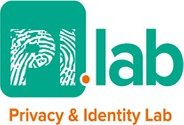Publications
Books
• Sharon, T. (2014) Human Nature in an Age of Biotechnology: The Case for Mediated
Posthumanism, “Philosophy of Engineering & Technology” series, Dordrecht: Springer.
* Over 9,000 chapter downloads.
* Focus of the book symposium: de Melo-Martin, M., Hauskeller, M., Braman, S., Guchet, X.
and Sharon, T. (2015) Symposium on Human Nature in an Age of Biotechnology. Philosophy &
Technology 28(4): 581-599.
* Reviewed in Van Den Eede, Y. (2015) Where is the human? Beyond the enhancement
debate. Science, Technology and Human Values 40(1): 149-162.
• Swierstra, T., Lemmens, P., Vermaas, P., Coeckelbergh, M., Sharon T. (under contract) (eds.)
The Technical Condition: An Introduction to Philosophy of Technology. Amsterdam: Boom.
Peer-reviewed articles
• Sharon, T. (forthcoming) When digital health meets digital capitalism, how many common goods
are at stake? Big Data & Society.
• Sharon, T. (2017) Self-tracking for health and the Quantified Self: Re-articulating autonomy,
solidarity and authenticity in an age of personalized healthcare. Philosophy & Technology 30(1):
93-121.
• Sharon, T. and Zandbergen, D. (2017) From data fetishism to quantifying selves: Self-tracking
practices and the other values of data. New Media & Society 19(11): 1695-1709.
• Sharon, T. (2016) The Googlization of health research: From disruptive innovation to disruptive
ethics. Personalized Medicine 13(6): 563-574.
• Sharon, T. (2016) Solidariteit in een tijdperk van mobiele en gepersonaliseerde gezondheid.
Lessen van de Quantified Self. Tijdschrift voor Gezondheid en Ethiek 26(3): 66-71.
• Sharon, T. (2015) Healthy citizenship beyond autonomy and discipline: Tactical engagements
with genetic testing. Biosocieties 10(3): 295-316.
• Sharon, T. (2013) The missing link: How biology can help philosophy of technology complete its
ontological shift. Tijdschrift voor Filosofie 75(1): 121-145.
• Sharon, T. (2012) A cartography of the posthuman: Humanist, non-humanist and mediated
perspectives on emerging biotechnologies, Krisis: Journal for Contemporary Philosophy 2.
• Sharon, T. (2011) A schizoanalysis of emerging biotechnologies: Renaturalized nature, the
disclosed secret of life, and technologically authentic selfhood. Configurations 19(3): 431-460.
Book chapters
• Sharon, T. (2013) Self-tracking en sociale netwerken in de gezondheidszorg: Verschuivende
definities van gezondheid en patiënt-zijn. In M. Boenink, G. Meynen and M. Schermer (eds.)
Komt een Filosoof bij de Dokter: Denken over Gezondheid en Zorg in de 21e Eeuw. Amsterdam:
Boom, pp. 275-290.
• Sharon, T. (2012) Technoscience and schizophrenia: The technological production of nature and
biology under control. In D. Riha (ed.) Frontiers of Cyberspace. Amsterdam: Rodopi, pp. 29-54.
Editor of special issues
• Sharon, T. and Lucivero, F. (proposal accepted, issue in preparation). The expansion of the
health data ecosystem: Rethinking data ethics and governance. Special issue for Big Data &
Society.
Commentaries
• Sharon, T. (2018) Let’s move beyond critique – but please, let’s not depoliticize the debate.
Invited open commentary. American Journal of Bioethics 18(2): 20-22.
• Aicardi, C. Del Savio, L., Dove, E., Lucivero, F., Mittelstadt, B., Niezen, M., Prainsack, B.,
Reinsborough, M., Sharon, T. (2016) Shortcomings of the revised “Helsinki Declaration” on
ethical use of health databases. The Hastings Center Bioethics Forum.
http://www.thehastingscenter.org/shortcomings-world-medical-associations-reviseddeclaration-ethical-use-health-databases/.
• Sharon, T. (2016) Apple and Google plan to reinvent health care. Should we worry? The
Hastings Center Bioethics Forum.
http://www.thehastingscenter.org/Bioethicsforum/Post.aspx?id=7739&blogid=140
• Sharon, T. (2015) Towards a phenomenology of technologically mediated moral change. Or,
what could Mark Zukerberg learn from caregivers in the southern Netherlands? Invited open
commentary for special issue on “The Art of Living with Technology”. Foundations of Science.
DOI: 10.1007/s10699-015-9450-y.
• Sharon, T. (2014) A return to wisdom via our technological relation to the world. Invited
contribution to a book symposium with author’s response. Philosophy and Technology 27(4).
DOI 10.1007/s13347-013-0127-6.
• Sharon, T. (2011) Have we become “posthuman”? Bar Ilan University’s series on science in
cooperation with Ha’aretz newspaper online, 21 July, http://barilan.haaretz.co.il/?p=393&s=1303. In Hebrew.
Presentations
INVITED / KEYNOTE PRESENTATIONS (selection)
• New Frontiers in Healthcare Data Sciences: Promises and Limitations, Radboud University (Nov
2018): “Big Data, Better Health, Broader Ethical Issues?”.
Symposium on data-driven decision-making in health, Pavia Univesrity (Oct 2018): “Data-driven
decision making, AI and the Googlization of health research”
• ESOF: Euroscience Open Forum, Toulouse (July 2018): “Technology and mental health”.
• Centre for Medical Science and Technology Studies, University of Copenhagen (Jun 2018):
“When digital health meets digital capitalism, how many common goods are at stake?”
• SURF Security and privacy conference, Twente University (Feb 2018): “Will privacy ever be
enough to secure the common good?”
• Digital Security Group, Radboud University (Jun 2017): “The Googlization of health”.
• Philosophy of Care Unit seminar, AMC University of Amsterdam (Apr 2017): “Google, Apple and
the disruption of healthcare. Or, the urgent need for data ethics”.
• Culture, Media and Society Seminar, KU Leuven (Mar 2017): “Four provocations for GHR”.
• Oh-Man, Oh-Machine: The Question Concerning Technology, Tel Aviv University (Dec 2016): “The
Googlization of medicine and the common good”.
• Barcelona Initiative for Technological Sovereignty, Barcelona (Dec 2016): “Data Sovereignty and
New forms of Democracy”.
• 4TU Center for Ethics and Technology, Delft University (Dec 2016): “Self-tracking, social networks
and responsibilization for health”.
• International workshop “Theorizing technological mediation”, Twente University (Nov 2016):
“Technology and morality: The case of QS”.
• PAS Festival, Maastricht (Sep 2016): “Personalized medicine, or Health in the Hands of Google
and Apple?”.
• Design Anthropology Symposium, Bureau Europa, Maastricht (Jun 2016): “Technological
Mediation and Self-tracking”.
• Collegium Chirurgicum Neerlandicum, Utrecht (Mar 2016): “How will ICT change the lives of
patients?”
• STOA panel meeting in conjunction with the Working Group on Legal Aspects of the
Development of Robotics and Artificial Intelligence. European Parliament, Strasbourg (Apr
2016): “Soft impacts of cyber-physical systems”.
• Maison des Sciences de l’Homme / EHESS, Paris (Mar 2016): “La transformation des valeurs et
du soi dans les pratiques de tracking”.
• LOM conference on Exercise and Physical Activity in relation to Lifestyle, Obesity and Metabolic
Diseases, Copenhagen (May 2015): “Self-tracking for health and the Quantified Self:
Reconceptualizing autonomy, solidarity and authenticity in personalized healthcare”.
• Workshop on “Surveillance in the sphere of intimacy”, Aarhus University (Jan 2015): “Tracking
the self, personalizing healthcare: The re-articulation of values in self-tracking for health”.
• Seminar, Department of Social Science, Health and Medicine, King’s College London (Mar 2014):
“You are what you track: Practicing autonomy, solidarity and authenticity in age of
personalized healthcare”.
• Seminar, Sociology Department, Lancaster University (Mar 2014): You are what you track:
Practicing autonomy, solidarity and authenticity in age of personalized healthcare”.
• Department for Internal Medicine, Sheba Medical Center, Israel (Jun 2011): “Patient 2.0:
Patient-Doctor Collaboration in an Age of Information”.
• Centre for Bioscience and Medicine, King’s College, London (Feb 2011): “A Cartography of the
Posthuman: Four Approaches to Emerging Biotechnologies and One Alternative”.
CONFERENCE PRESENTATIONS (selection)
• Amsterdam Privacy Conference (Oct 2018): “Facial recognition and the ethics of indifference: revitalising civil inattention as a privacy protecting mechanism”.
• S.NET annual conference, Maastricht, NL (June 2018): “When digital health meets digital
capitalism, how many common goods are at stake?”.
• TILT Law & Technology bi-annual conference, Tilburg, NL (Apr 2017): “The Googlization of health
research. Challenges and possible ways forward”.
• Society for Social Studies of Science, annual conference, Barcelona, SP (Sep 2016). “Ethical
issues in the Googlization of medical research. From data philanthropy to new power
asymmetries”.
• Digital Health/Digital Capitalism, Leeds, UK (Jul 2016). “Disruptive innovation in digitally-enabled
medical research. Research ethics, privacy and power”.
• Critical Theory of Technology & STS: A Symposium with Andrew Feenberg, Maastricht, NL (Mar
2016). “The Googlization of medical research: Research ethics, privacy, power”.
• Society for Social Studies of Science, annual conference. Denver, CO (Nov 2015). “From data
fetishism to quantifying selves: Self-tracking practices and the other values of data”.
• Amsterdam Privacy Conference (Oct 2015). “From care to big biomedical data: Fostering civil
inattention as a means of securing privacy”.
• “Trading Zones in Technological Societies”, Liège, BE (Sep 2015). “The Googlization of health”.
• TILT Law & Technology bi-annual conference (Mar 2015). “Quantified Self: Enacting autonomy in
a culture of surveillance and healthism”.
• European Association for the Study of Science and Technology, Torun, PL (Sep 2014). “From ‘n =
me’ to ‘n = we: Self-tracking for health as a solidarizing practice”.
• Society for the Philosophy of Technology conference, Lisbon, PT (Jul 2013). “Technologies and
techniques of healthy citizenship beyond autonomous choice and discipline”.
• The Center for Ethics and Politics of Emerging Technologies conference (Jul 2012). “Healthy
techno-moral change: Tactical practices of healthy citizenship”.
• ESRC Genomics Network conference (Apr 2012). “Between choice and discipline: Exploring the
unexpected normativity of healthy citizenship”.
Other
Media coverage
• Austin, E. (2016) De technologische burger. Podcast Insert User.
https://insertuser.nl/podcasts/de-technologische-burger
• Tzuriel Harrari, K. (2016) My soul. Big data (in Hebrew). HaCalcalist, December 8.
• Goutier, N. (2016) Ik leef bewuster door mijn self-tracking-app. Filosofie Magazine, March.
• van Rootselaar, F. (2015) Vloek of zegen? Apps in de Gezondheidszorg. Zorg Magazine.
I study the ethical and societal impacts of new technologies, mainly in relation to health and medicine. Increasingly, these tend to be digital; increasingly, ethics is under strain.
I am currently an Associate Professor at the Faculty for Philosophy, Theology and Religion at Radboud University, and co-founding the soon to launch Center for Privacy, Security and Data Governance with Prof. Bart Jacobs. I’m a member of the WHO European Advisory Committee on Health Research, and the Data and IT in Health and Medicine Lab at King’s College London. Previously I held positions at Maastricht University and a visiting fellowship at King’s College. I hold a PhD in Interdisciplinary Studies from Bar Ilan University, Israel (2011). Before Israel I lived in France.

